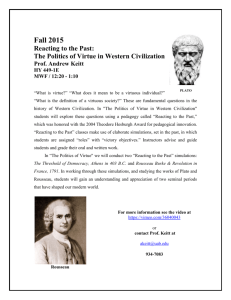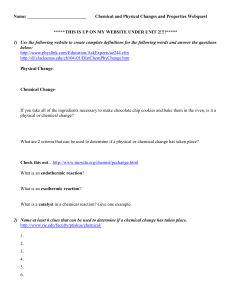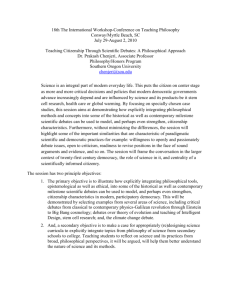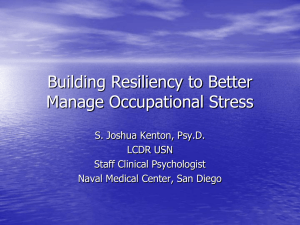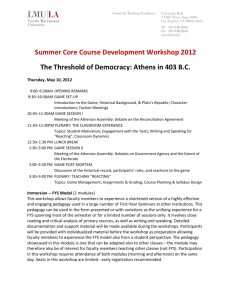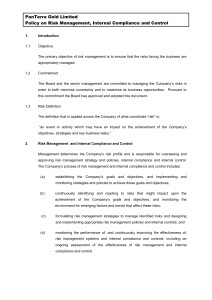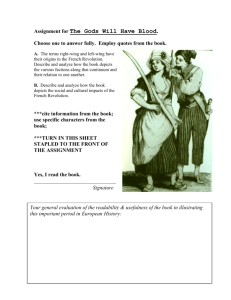Reacting to the Past Fall2011
advertisement
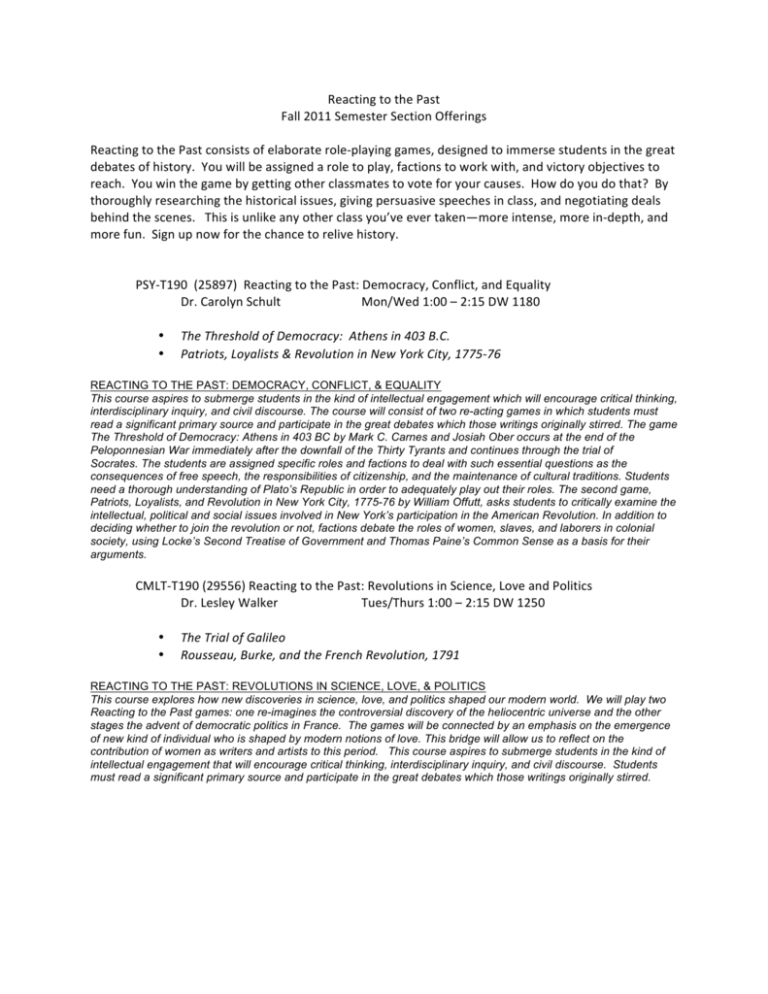
Reacting to the Past Fall 2011 Semester Section Offerings Reacting to the Past consists of elaborate role-­‐playing games, designed to immerse students in the great debates of history. You will be assigned a role to play, factions to work with, and victory objectives to reach. You win the game by getting other classmates to vote for your causes. How do you do that? By thoroughly researching the historical issues, giving persuasive speeches in class, and negotiating deals behind the scenes. This is unlike any other class you’ve ever taken—more intense, more in-­‐depth, and more fun. Sign up now for the chance to relive history. PSY-­‐T190 (25897) Reacting to the Past: Democracy, Conflict, and Equality Dr. Carolyn Schult Mon/Wed 1:00 – 2:15 DW 1180 • The Threshold of Democracy: Athens in 403 B.C. • Patriots, Loyalists & Revolution in New York City, 1775-­‐76 REACTING TO THE PAST: DEMOCRACY, CONFLICT, & EQUALITY This course aspires to submerge students in the kind of intellectual engagement which will encourage critical thinking, interdisciplinary inquiry, and civil discourse. The course will consist of two re-acting games in which students must read a significant primary source and participate in the great debates which those writings originally stirred. The game The Threshold of Democracy: Athens in 403 BC by Mark C. Carnes and Josiah Ober occurs at the end of the Peloponnesian War immediately after the downfall of the Thirty Tyrants and continues through the trial of Socrates. The students are assigned specific roles and factions to deal with such essential questions as the consequences of free speech, the responsibilities of citizenship, and the maintenance of cultural traditions. Students need a thorough understanding of Plato’s Republic in order to adequately play out their roles. The second game, Patriots, Loyalists, and Revolution in New York City, 1775-76 by William Offutt, asks students to critically examine the intellectual, political and social issues involved in New York’s participation in the American Revolution. In addition to deciding whether to join the revolution or not, factions debate the roles of women, slaves, and laborers in colonial society, using Locke’s Second Treatise of Government and Thomas Paine’s Common Sense as a basis for their arguments. CMLT-­‐T190 (29556) Reacting to the Past: Revolutions in Science, Love and Politics Dr. Lesley Walker Tues/Thurs 1:00 – 2:15 DW 1250 • • The Trial of Galileo Rousseau, Burke, and the French Revolution, 1791 REACTING TO THE PAST: REVOLUTIONS IN SCIENCE, LOVE, & POLITICS This course explores how new discoveries in science, love, and politics shaped our modern world. We will play two Reacting to the Past games: one re-imagines the controversial discovery of the heliocentric universe and the other stages the advent of democratic politics in France. The games will be connected by an emphasis on the emergence of new kind of individual who is shaped by modern notions of love. This bridge will allow us to reflect on the contribution of women as writers and artists to this period. This course aspires to submerge students in the kind of intellectual engagement that will encourage critical thinking, interdisciplinary inquiry, and civil discourse. Students must read a significant primary source and participate in the great debates which those writings originally stirred. Reacting to the Past Fall 2011 Semester Section Offerings (continued) PHIL-­‐T190 (25897) Reacting to the Past: Socrates, Galileo, Darwin Dr. Lyle Zynda Mon/Wed 11:30 – 12:45 DW 1160 • The Threshold of Democracy: Athens in 403 B.C. • The Trial of Galileo • Charles Darwin, the Copley Medal and the Rise of Naturalism, 1861-­‐64 REACTING TO THE PAST: SOCRATES, GALILEO, DARWIN This course gives students an in-depth understanding of several historical episodes using "reactive" role-playing games. Each of the three sections of the class centers on a revolution in human thinking. First, we will examine the birth of democracy in ancient Greece. Debates in the Athenian Assembly over the desirability of democratic rule, the extent of power, and the need for preserving traditions will be reenacted; special attention will be given to Plato's Republic and the trial of Socrates. Next, we will examine the debates over the sun-centered theory of Copernicus, which eventually replaced ancient views that regarded the earth as the center of creation. Galileo's trial for publicly advocating Copernicanism, and his condemnation by the Catholic Church, provides the main focus for this section of the course. Finally, we will examine the debates in the Royal Society of Great Britain over Darwin's The Origin of Species in the 1860s. Controversies over the relation between religion and science, faith and reason, and the nature and scope of scientific thinking that occurred then still reverberate today in our own culture. UPCOMING SEMESTERS: Spring 2011 FYE Seminars Michael Scheessele COGS B190 – How the mind works: explorations in cognitive science Critical thinking is intrinsic to this course. Basic logic as well as a logic tutorial from philosophy are utilized initially. Additional examples of flawed reasoning from politics, marketing, and local current events are subsequently considered. Articles about the mind are read and discussed, with arguments and counterarguments considered. Spring 2011 Reacting to the Past Sections Frank Fujita
